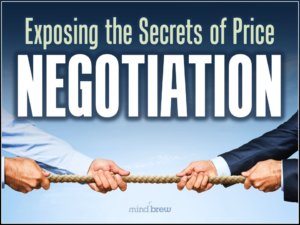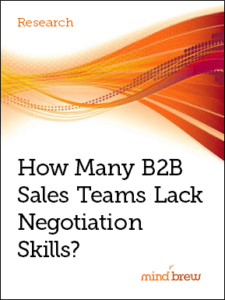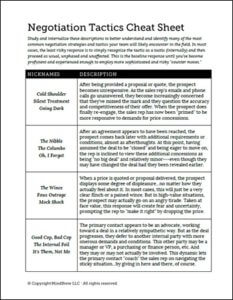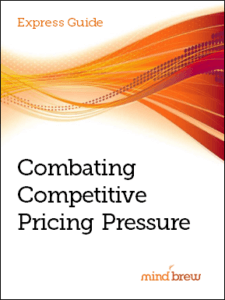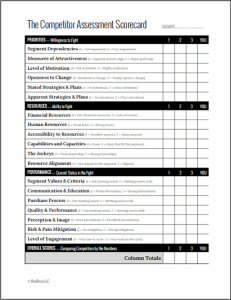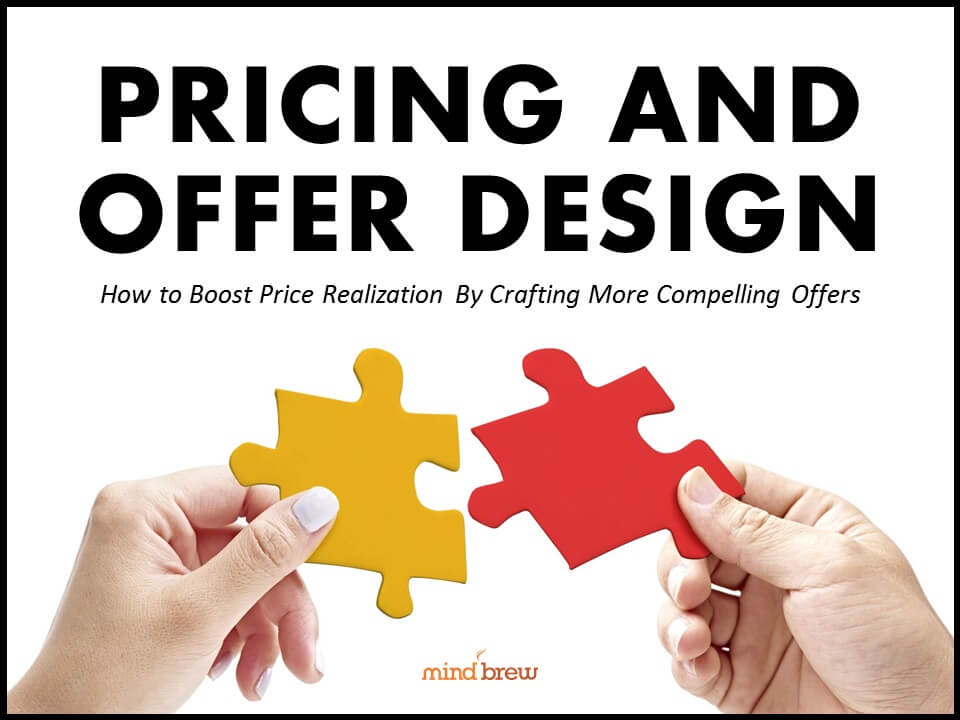You’ve probably noticed that here at the PricingBrew Journal, we’re constantly beating the drum about improving your company’s negotiation skills. And we’re going to continue that drumbeat until every organization within our reach closes this extremely costly capability gap.
But while we’ve certainly seen progress on this front, a number of teams still have questions and concerns. One of these concerns has to do with potential harm to customer satisfaction. In the Q&A portion of our “Exposing the Secrets of Price Negotiation” webinar, one skeptical attendee put it like this:
I can see how being tougher negotiators helps in the short term, but won’t it hurt customer relationships and satisfaction in the longer term?
Of course, being highly combative and overly defensive can sour any relationship. And certainly, negotiating in bad faith or intending to scam the other party will never pay off over the long haul. But that’s not the kind of negotiation we’re talking about.
We’re talking about “playing the game” with more diligence, vigilance, and intelligence. We’re talking about working harder to protect your margins and get paid for the value your offerings provide. And it’s a bit difficult to imagine how this type of negotiation…earnest, genuine, and in the spirit of friendly competition…could make customers angry and cause them to go elsewhere.
In fact, while it may be somewhat counter-intuitive, the reality is that effective negotiation can actually increase customer satisfaction and improve relationships.
Here’s a simple example to illustrate…
A buyer needs to purchase a widget. The widget is listed at $1000. But the buyer tells the seller that they can only spend $750. And right away, the seller says OK and writes up the order. What goes through the buyer’s mind at that point?
Of course, the buyer thinks they could’ve done a lot better! Because the seller was so eager to lock up the order without the slightest bit of push-back, the buyer can’t help but suspect that even their “low-ball” $750 offer was still too rich.
Will the buyer be satisfied with their purchase? And what about their relationship with the seller? Even though the buyer “won” by negotiating 25% off the list price, they might still feel like the product wasn’t worth what they paid. And as a result, they might even believe that the seller took advantage of them.
Now imagine it playing out differently…
This time, the seller isn’t so quick to give the buyer 25% off. Instead, they highlight all the reasons their widget is actually worth more than the $1000 list price. The buyer takes all of that in, but keeps pushing. And the seller keeps countering with solid arguments, supporting evidence, and so on. Eventually, however, the buyer and seller both agree on a final price of $875.
Even though the buyer ended up paying a higher price than in the other scenario, they’ll likely be more satisfied with this deal because 1) they had to work harder to get it, 2) they learned more about the product along the way, and 3) the seller clearly demonstrated that they themselves believe in the value of their offering…and that says a lot.
The point is that because the potential benefits to customer satisfaction and long-term relationships far outweigh any of the risks, you shouldn’t let this concern stop you from improving your organization’s negotiation skills.
Another excuse down…only a few more to go 🙂

